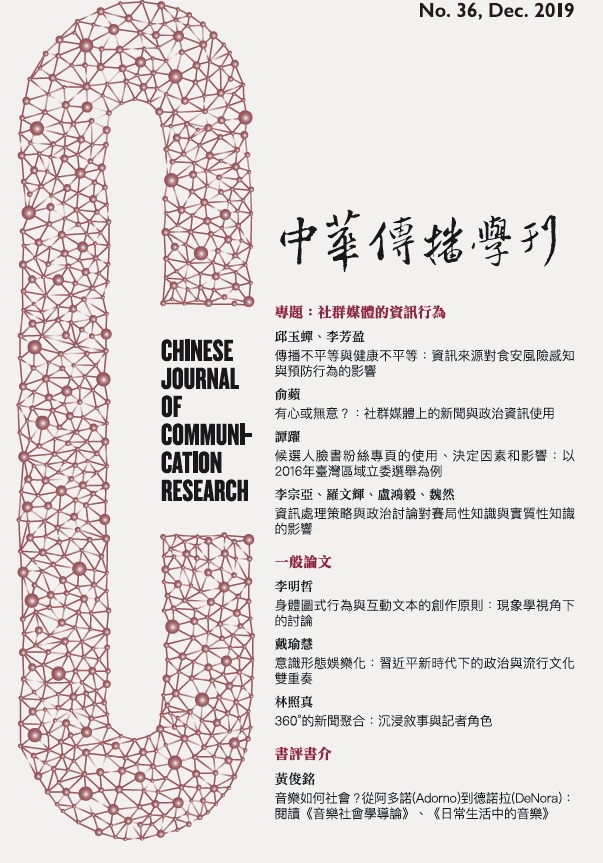 閱覽人數: 4013
閱覽人數: 4013
December
2019
No. 36
社群媒體的資訊行為
Information Behaviors of Social Media頁數:195 - 235
作者(中)
戴瑜慧
作者(英)
Yu-Hui Tai
關鍵詞(中)
宣傳、流行文化、娛樂、偶像、意識形態、愛國主義
關鍵詞(英)
propaganda, popular culture, entertainment, idol, ideology, patriotism
中文摘要
2018 年是中共實行改革開放40 周年。市場經濟並未將中共推向 民主化,且其一黨專政制度在動盪下依舊維持,中共的意識形態工作 遂成理解其執政能力的重點。本研究分析習近平政權的意識形態政 策,指出其高度強調意識形態作用,並以「中國夢」為政治思想核 心。研究結果指出,中共採取意識形態娛樂化的策略,結合流行文化 的元素與平台,進入網路娛樂與青少年的日常生活;並以控制市場接 近權的政治權力,將多種主體收編進意識形態工作,包括市場化走向 的黨媒、半官方單位以及私人資本。透過綜藝節目與青少年偶像,讓 觀眾在輕鬆娛樂中浸染愛國主義氛圍。
英文摘要
The 40th anniversary of the Chinese Communist Party (CCP)’s Reform and Opening Policy occurred in 2018. The market economy has not pushed the CCP into democratization, and the one-party dictatorship system has remained. The ideology of the CCP has become the focus of scholars attempting to understand its ability to govern. This study analyzes the ideological policy of Xi Jinping’s regime, which places strong emphasis on the role of ideology and the “Chinese Dream” as the core of political thought. The research results indicate that the CCP has adopted the strategy of ideotainment, in which it combines ideology with the elements and platforms of popular culture, to achieve a presence in online entertainment and the daily life of young Chinese. With monopoly control of market access, the CCP co-opts numerous subjects into its ideological work, including market-oriented party media, semiofficial units, and private capital firms. Through variety shows and youth idols, the audience feels the call of the Chinese Dream and patriotism within a relaxed and entertaining atmosphere.